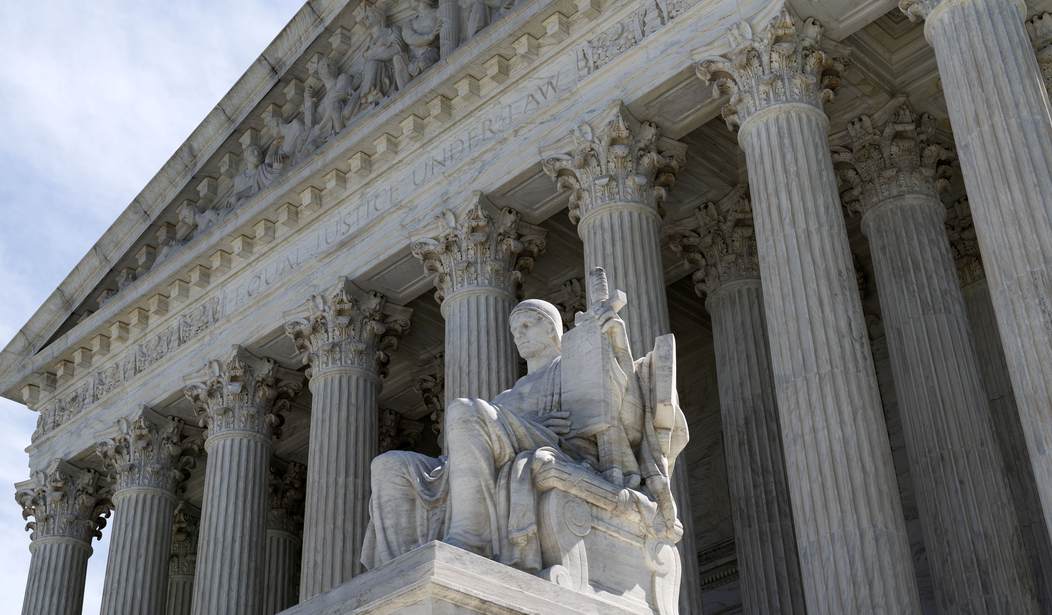A surprisingly unanimous Supreme Court decision last week finally clipped the ever-expanding wings of the Environmental Protection Agency (EPA).
For more than half a century, imperious regulators at the EPA and the Army Corps of Engineers, with which it shares regulatory jurisdiction over “wetlands” and “navigable waters of the United States,” have worked to prevent citizens and businesses from taking common sense steps to develop privately owned property in ways that benefit them and which have no significant negative impact on the environment.
One ploy the EPA and the Army Corps often have used in their war on private property owners, is to assert expansive jurisdiction over small or occasional bodies of water and “wetlands” -- claiming these constitute “navigable waters of the United States,” and are therefore subject to regulation under the 1972 Clean Water Act (CWA).
This was the predicament in which Michael and Chantell Sackett found themselves in 2007, when the EPA moved to stop them from improving their small parcel of property near Priest Lake, Idaho. The Sacketts had, in the eyes of Uncle Sam’s regulators, committed an egregious offense by failing to first obtain a Corps of Engineers permit before taking preliminary steps to improve their property. The government claimed the property contained “wetlands” that in some way and at some point in time had a “nexus” to a navigable waterway of the United States.
The Sacketts’ position was simple -- property with no waterway at all, much less one that is “navigable,” does not transmogrify into “navigable water” simply because it is near such a waterway and might contain some occasional “wetlands.” Despite this common sense interpretation of the scope of the Clean Water Act, the federal government continued for 16 years to harass the Sacketts.
Unlike many private property owners who have neither the money nor the time to wage a multi-year legal battle with the EPA or the Corps of Engineers, the Sacketts were represented in their struggle by the conservative public interest law firm, Pacific Legal Foundation, which enabled them to continue fighting until their historic victory.
Recommended
Justice Alito, who authored last week’s Sackett opinion, identified clearly what was at stake. He noted, for example, that literally hundreds of millions of acres of “wetlands,” and virtually every piece of land with a channel or conduit for rainwater runoff would be subject to arbitrary government permitting control unless the EPA was reined in.
In fact, had the Sackett family been forced to throw in the towel, the Biden Administration was prepared and ready to implement an even broader regulation on “wetlands” and “navigable waters” it had proposed last January: “Revised Definition of ‘Waters of the United States.’” The gobbledygook in this proposed regulation is utterly, and purposefully undecipherable.
Biden’s proposal, which thankfully will now have to be redrafted in light of the Supreme Court’s decision, would have forced a landowner wanting to develop a parcel of land, to first determine if it contained any “wetland” that might have either a “continuous surface connection to a relatively permanent” waterway, or have a “significant nexus” such as might “significantly affect . . . traditional navigable waters.”
Even if a property owner could figure all that out, they would still need to obtain a permit before taking any steps to develop their property -- a process that often takes years.
Alito’s opinion stops the EPA from forcing property owners to comply with its breathtakingly expansive wetlands position. In its place is a significantly narrower jurisdictional power that limits the EPA and the Corps of Engineers to only those wetlands that truly are “as a practical matter indistinguishable” from larger (i.e., “navigable”) bodies of water nearby; not those with some occasional or vague “nexus” to, or potential impact on actual “navigable waters.”
While environmental groups, such as the Natural Resources Defense Council, see an environmental disaster in the wake of the Sackett decision, in reality all the Supreme Court has done is to put the EPA back into the constitutional lane as intended by the 1972 law. It’s about time.
Bob Barr represented Georgia’s Seventh District in the U.S. House of Representatives from 1995 to 2003. He served as the United States Attorney in Atlanta from 1986 to 1990 and was an official with the CIA in the 1970s. He now practices law in Atlanta, Georgia and serves as head of Liberty Guard.

























Join the conversation as a VIP Member